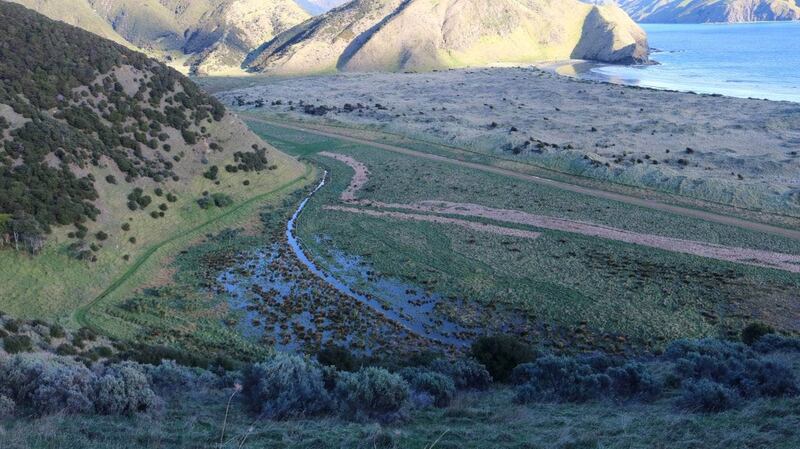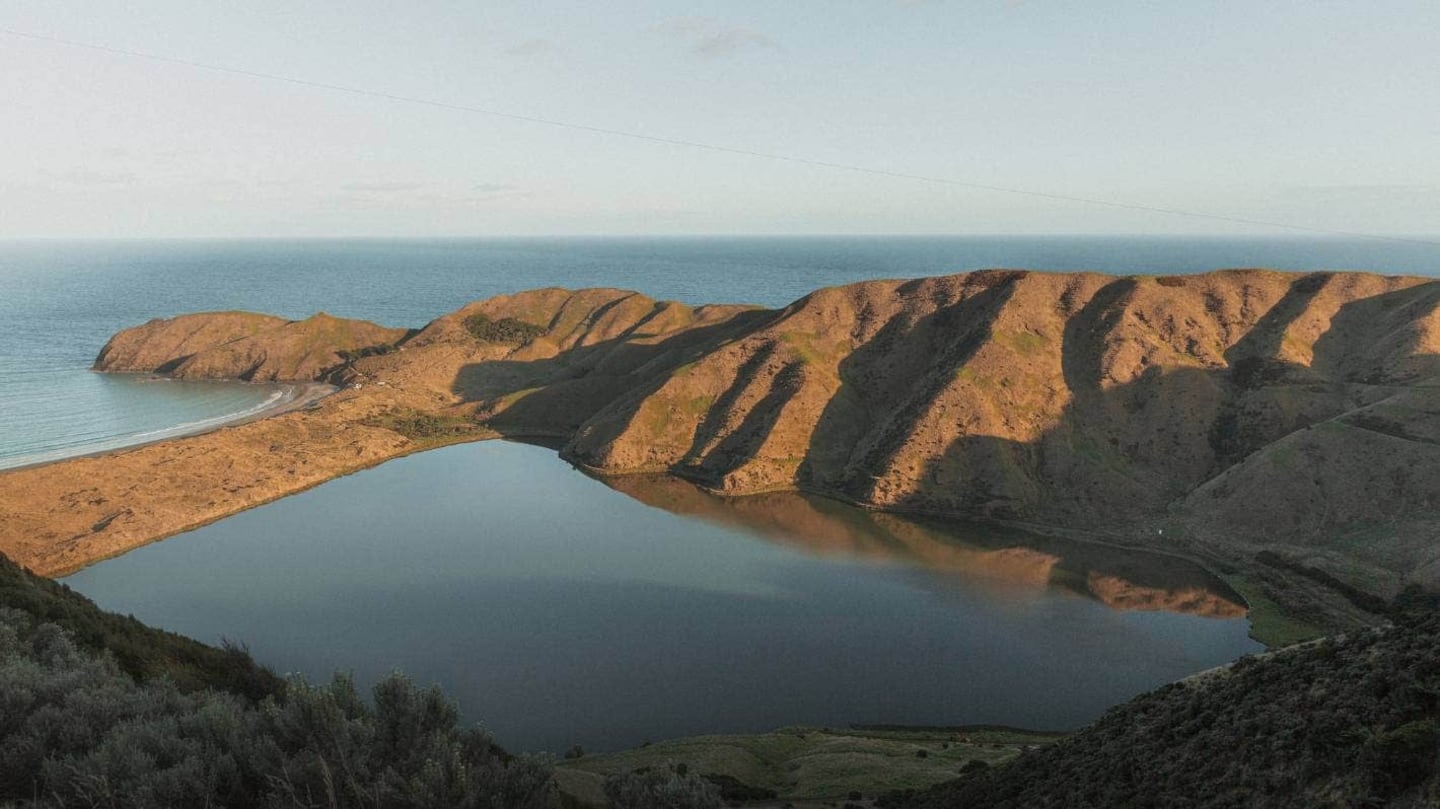Progress has been made on a project to restore a culturally significant lake on Rangitoto ki te Tonga (D’Urville Island).
Lake Moawhitu in the Marlborough Sounds has a continuing problem with algal blooms caused by internal cycling and the release of nutrients from lake-bed sediments.
Deforestation and modification of the surrounding landscape and riparian edge vegetation have caused a lack of in-lake woody habitat for fish.
As part of the Jobs for Nature programme, Ngāti Koata Trust received $759,000 over four years to plant natives and improve the freshwater quality within the catchment. This government funding was announced in early 2022.
Moawhitu project manager Dan Moore provided an update on the project to the Marlborough District Council’s environment and planning committee on October 5.
Moore said a survey of the lake and lagoon area showed that over time, it had dropped by about 16 feet.
He said the aim of restoration was to rejuvenate the water quality, so traditional taonga species, like tuna, could be restored.
“Taking core samples out there has helped us really understand what was going on in the catchment and also the population of tuna in the lake,” Moore said.
He said one of the “real successes” had been the tight governance group and partnerships that had contributed to the project.
This included Ngāti Koata, the council, Department of Conservation and external funders.
“It’s been a really cool project for bringing Ngati Koata back to their rohe, and to revitalise the mātauranga (knowledge),” he said.
In the last five years, 60,000 trees were planted, which had created a “full canopy closure”.
“We’re just providing a big collective corridor between the wetland, the lake margins and the high erosion points of the lake,” he said.
This would create biodiversity corridors and high erosion points to build resilience, he said.

The group intended to apply for a resource consent this year to treat the lake with capping material.
“We’re trialling different agents for capping the phosphorus in the bottom sediment. And essentially reducing the reflux of that through the water column,” he said.
The intent was to reduce the internal cycling of nutrients, particularly phosphorus.
Ngāti Koata environmental manager Alice Woodward last year said the lake and wetland system had suffered from wetland drainage, deforestation, lake level reduction and freshwater pollution for decades.
The area was transferred into European ownership in 1918, though Ngāti Koata were granted an access easement, so they could continue their use of the area.
However, the degrading quality of the lake meant Ngāti Koata whānau had been unable to continue cultural practices and mahinga kai, Woodward said.
In 2006, the land was bought and transferred to DOC as part of the D’Urville Island Reserve.



